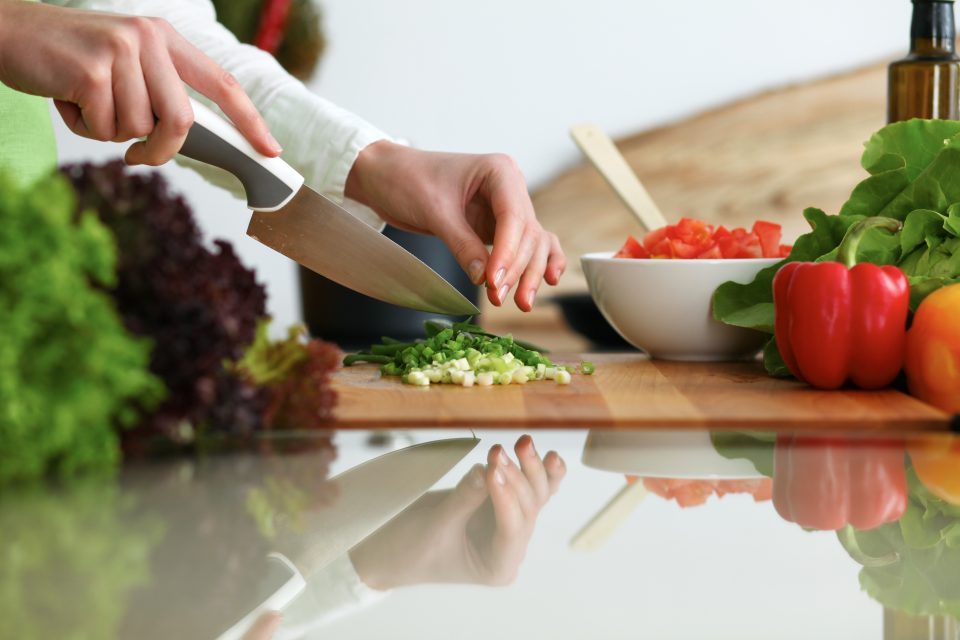“I have a gut feeling about it,” has just been something we say to explain our intuition. However, scientists have now found the bacteria in your gut directly affects our feelings. Beyond mood regulation, our gut determines everything from the appearance of our skin to the quality of our lifespan. And it all comes down to the dirty matter living inside. It is there we find the ones behind it all: the microbiome, the invisible control center in our gut.
I have to admit, biology was my most frequently skipped class in college due to the overwhelming amount of information I was expected to comprehend about an area of the body that was not even visible. After retaking the class, I can’t say I feel any more knowledgeable about any of the invisible cellular information. What I do remember is the significance our genes have on our health. As a refresher, genes are segments of DNA found in the center of cells throughout our body. They are inherited and developed traits that are responsible for making you, well, you. It’s why you have your mother’s height, your fathers skin type, and, unfortunately, your grandmother’s risk of cancer. Up until recently we thought these genes throughout the body were the only ones accounting for our individual wiring. But now, we have discovered the microbiome, which can be linked to significant development such as future disease, obesity, inflammatory bowel disease, Parkinson’s, depression, autism, allergies and how we may respond to cancer drugs. To put it into perspective, the genes we discovered in the 1800s number about 20,000 throughout our body. The genes in the cells of the microbiome can number up to 20 million. It’s a big discovery with a big influence.
So, what exactly is the microbiome, and why does it matter?
Microbiome, by definition, is a small habitat of living things. So, in our “gut,” specifically, the end of your large intestine, there is a small habitat holding those millions of genes responsible for everything that is you. What’s unique about the genes in your gut is that they are affected by your diet, your environment, your pets and the people you live with. All of their bacteria affect your bacteria. It creates a unique fingerprint, if you will. If you hadn’t guessed by the location, the microbiome is a dirty mess, made up of primarily bacteria, fungi and viruses. Repress the need to sanitize, because their balance is crucial for our health. Our gut holds some pretty heavy hitters for the maintenance of our emotional and physical health. Ninety percent of our serotonin, the happy chemical in our body, is produced in our gut instead of your brain. The gut also holds 70% of our immune system, revealing the correlation to brain disorders. With the gut acting as the storage and control centers, you would think it wouldn’t be located at the exit. Fortunately, we were designed with a direct highway from the gut to the brain called the vagus nerve.
Due to the predominance of serotonin in the gut, scientists at APC Microbiome Center at the University College of Cork posed the question, “If you transfer the bacteria, do you transfer the behavior?” Through their experiments, they transplanted bacteria from the gut of depressed patients into rats. Prior to the experiment the rats had been kept in a cage, where they received sugar water in their daily routine. With the sugar water, the rats were consistently noted to become excited, as if they could not get enough. After the transplant, the scientists noticed the rats began displaying some features of the depressed patients, specifically anhedonia (inability to feel pleasure). Most evident was the rat’s complete loss of interest in the sugar water. This led to the conclusion that the genetic makeup of the microbiome, influenced by our environment and diet, does, in fact, have a substantial effect on our mental well-being.
Now knowing the influence our gut has over our mental and physical wellness, we can turn our attention to the state of our gut health. Good gut health leads to increased mood, better skin (due to hormone regulation), improved sleep and increased energy. Not to mention it is the arena for fighting disease. It is found that 90% of all diseases can be traced back to the health of the microbiome in the gut. An inflamed gut in poor health is seen in many instances: decreased mental health, skin issues, chronic lethargy, thyroid issues, asthma, joint pain, low immune system, autoimmune disease, type 2 diabetes, obesity, acid reflux and digestive issues.
What causes the gut to become inflamed?
Inflammation in the gut is predominately caused by our diet. The most common inflammatory foods are refined cooking oils, processed meats, added sugars and trans fats. Since the gut functions as command central, the effects of its imbalance are seen throughout the body. Addressing these symptoms means taking back control of our body. To do this, we need to focus on reducing the inflammation by the same means that inflamed it – diet. And anti-inflammatory foods are the quickest route to the source.
How do I know which foods are anti-inflammatory?
When looking for anti-inflammatory foods, just think fresh. Nothing processed preserved or added.
- Whole veggies
- Fresh fruit
- Herbs and spices
- Probiotics
- Fresh meat, fish and eggs
- Healthy fats found in legumes, nuts and avocado
- Ancient grains
The list of dos and don’ts may feel overwhelming. You may already feel defeated thinking of having to find all these specific foods and form meals out of them, and you’re only at the shopping list stage. Fortunately, part of the world realized the importance of these foods before they knew how deep their impact would be. It comes as no surprise that they have a longer life span, decreased mental illness, and decreased overall disease compared to the US. The people of the Mediterranean were cooking gut friendly food long before we adopted it as a diet plan in the 1940s. However, we didn’t keep the same portions they did. When we adopted their pasta dishes, we directed it into the main course rather than keeping it a sensible side to vegetables.
Although invisible and subtly recognized, the bacteria in your gut is revealed in your mood, skin, well-being and future health. Instead of continuing to suffer and treat the symptoms of an inflamed gut, you now have the tools to repair the source. Thinking back, when your mom told you to trust your gut, she had no idea how right she was. With your new knowledge of the microbiome and its influence on the entirety of your health, you can build on the wise words of your mother for your health and future.
References
Bowe WP, Logan AC. Acne vulgaris, probiotics and the gut-brain-skin axis – back to the future?. Gut Pathog. 2011;3(1):1. Published 2011 Jan 31. doi:10.1186/1757-4749-3-1
DiPatrizio NV. Endocannabinoids in the Gut. Cannabis Cannabinoid Res. 2016;1(1):67–77. doi:10.1089/can.2016.0001
Jakobsson HE, Jernberg C, Andersson AF, Sjölund-Karlsson M, Jansson JK, Engstrand L. Short-term antibiotic treatment has differing long-term impacts on the human throat and gut microbiome. PLoS One. 2010;5(3):e9836. Published 2010 Mar 24. doi:10.1371/journal.pone.0009836
Nakamaru-Ogiso E1, Miyamoto H, Hamada K, Tsukada K, Takai K. Novel biochemical manipulation of brain serotonin reveals a role of serotonin in the circadian rhythm of sleep-wake cycles. Eur J Neurosci. 2012 Jun;35(11):1762-70. doi: 10.1111/j.1460-9568.2012.08077.x. Epub 2012 May 24.
Ursell LK, Metcalf JL, Parfrey LW, Knight R. Defining the human microbiome. Nutr Rev. 2012;70 Suppl 1(Suppl 1):S38–S44. doi:10.1111/j.1753-4887.2012. 00493.x
Zinah Zamil Al-Ghezi, Hasan F Alghetaa, Mitzi Nagarkatti, Prakash Nagarkatti Combination of cannabinoids, Δ9- tetrahydrocannabinol (THC) and cannabidiol (CBD), mitigate experimental autoimmune encephalomyelitis (EAE) by altering the gut microbiome. The Journal of Immunology May 1, 2017, 198 (1 Supplement) 219.20;



